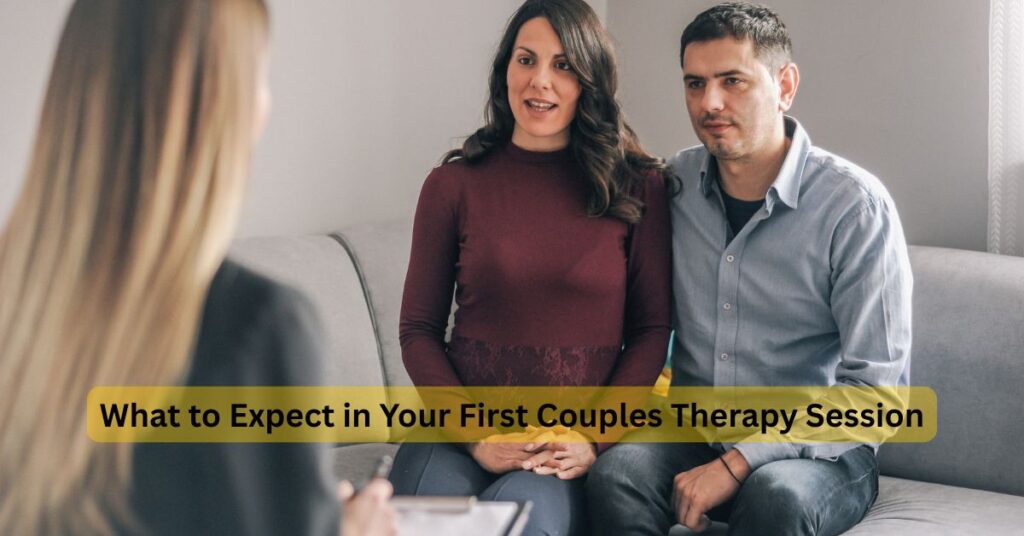So you’ve scheduled your first couples therapy session.
Maybe you’re feeling nervous. Maybe hopeful. Maybe a little skeptical—wondering if this is going to be another conversation that goes nowhere, just with someone else in the room.
That’s normal. In fact, it’s more than normal, it’s honest.
Walking into couples counseling in Houston isn’t just about saving your relationship. It’s about admitting you’re stuck and brave enough to do something about it. It’s about owning the fact that love—real love—isn’t a Hallmark card. It’s raw. It’s layered. And sometimes, it’s damn hard.
But therapy isn’t just about talking. It’s about seeing. Listening. Shifting. And if done right, it can help you and your partner get back to the root of what brought you together in the first place.
What to Expect in Your First Couples Therapy Session
Here’s what you need to know before that first session—and how to get the most out of it.
1. Drop the Goal of “Fixing”
The first trap most couples fall into is showing up with the unspoken goal of fixing the other person.
Let it go.
Therapy isn’t about proving who’s right, or stacking up all the ways your partner has failed. It’s about understanding the pattern that both of you have been caught in. It’s about stepping out of the blame cycle and into curiosity.
Your therapist’s job isn’t to take sides. It’s to help you both hear what’s underneath the anger, silence, resentment, or disconnection.
Tip: Come in with the mindset of exploration, not resolution. The first session is about laying groundwork, not crossing the finish line.
2. Be Willing to Be Uncomfortable
The real work in Houston couples therapy starts when the walls come down. That won’t happen if you’re too busy trying to look like the “better partner.”
This isn’t a performance.
It’s okay to cry. It’s okay to fumble your words. It’s okay to say something and realize halfway through you’ve never said it out loud before. That’s the point.

Discomfort is a sign that something real is happening.
Tip: If it feels hard to open up, say that. Vulnerability in the room creates trust—not just with the therapist, but with each other.
3. Don’t Expect a Referee—Expect a Mirror
A common misconception is that a relationship counselor in Houston is there to mediate fights like a courtroom judge. That’s not therapy. That’s arbitration.
A good therapist isn’t here to pick winners. They’re here to hold up a mirror to your dynamic—how you talk, how you withdraw, how you protect yourselves from hurt—and help you see the root system beneath the symptoms.
Tip: Expect reflection more than advice. The best therapists guide you back to your own clarity, not their opinions.
4. Speak for Yourself, Not Your Partner
It’s easy to fall into the habit of talking about your partner instead of from your own experience.
“She never listens.”
“He always shuts down.”
“They don’t care anymore.”
These statements might feel true, but they create defensiveness and distance. Therapy is most powerful when you speak from the “I.”
Tip: Use statements like, “I feel hurt when…” or “I shut down because…” This creates space for connection rather than conflict.

5. Share the Stage
Sometimes one person dominates the session—especially when emotions are high. But therapy isn’t just about getting it all off your chest. It’s about making space for the other person’s truth, even if you don’t like it or agree with it.
Let your partner speak. Listen with the intent to understand, not to reload.
And if you’re the quieter one, challenge yourself to speak up. Silence is often a form of self-protection, but it’s also a wall.
Tip: Your therapist will help balance the conversation. Trust them—but also trust yourself to take up space or step back when needed.
6. Don’t Expect Immediate Transformation
You wouldn’t expect to get fit from one workout. Therapy is the same.
The first session might feel a little clunky. It might even feel worse before it gets better, because you’re finally touching the things you’ve both been avoiding.
That’s normal.
What matters is whether you both feel like this is a space you can grow in.
Tip: After the session, ask yourselves: “Do I feel hopeful about this process?” Not “Was it perfect?” Hope is a better compass than comfort.

7. Take It Outside the Room
The real power of couples therapy doesn’t live in the 50-minute hour. It lives in how you process afterward. In how you bring what was uncovered into your everyday lives—your fights, your intimacy, your routines.
If your therapist gives you a question to reflect on or a pattern to notice during the week, take it seriously. This isn’t homework for the sake of homework. It’s the bridge between awareness and change.
Tip: After the session, go for a walk or grab coffee together—no phones. Talk about what stood out. Keep the conversation open.
Bonus – If It Doesn’t Feel Right, Say Something
Not every therapist is the right fit. If something feels off—too fast, too surface-level, too heavy-handed—don’t ghost the process. Talk about it. A good therapist will welcome your feedback and adjust.
This is your space. Own it.
Final Word – This Is the Work That Matters
There’s nothing soft about therapy. It takes guts to sit down, face your own patterns, and do the work of loving someone when it’s hard.
Especially in a city like Houston, where the pace is fast, the stress is high, and the culture often tells us to handle it ourselves, it takes something radical to say, “We need help.”
But that radical honesty? That’s where the healing begins.
If you’re ready to show up, crack open, and get real, your first couples counseling session can be the start of something deeper than you’ve ever had before.
Looking for a couples therapist in Houston who can meet you where you are—without the fluff?
At Malaty Therapy, we work with couples who want something real. Whether you’re fighting too much or not connecting enough, we’ll help you make sense of the mess and start moving toward clarity and connection.
Book your consultation today.

